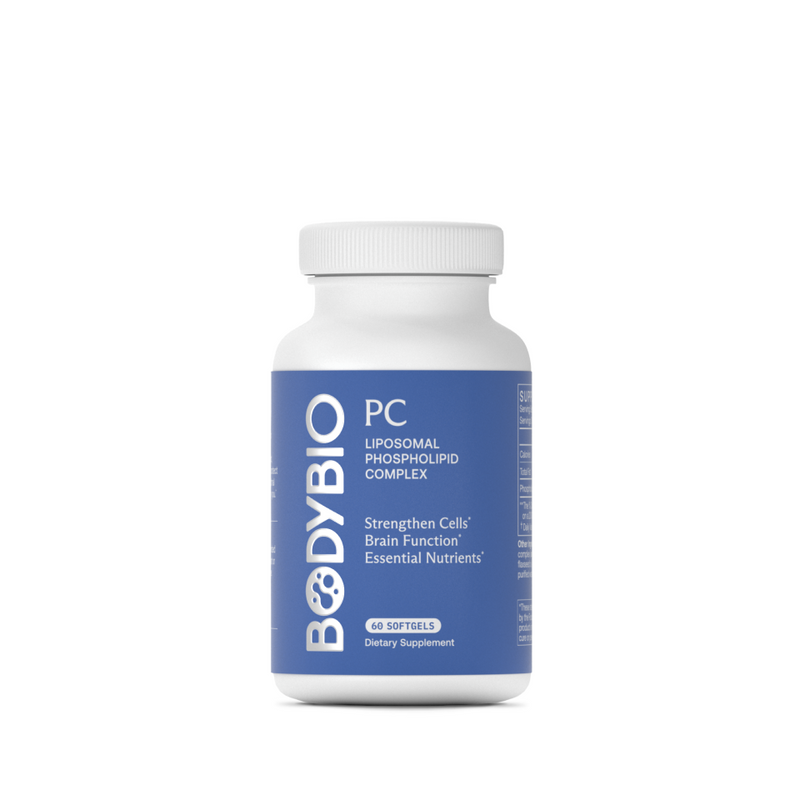The Mitochondria-Brain Connection: Why Cellular Energy Powers Mental Clarity
Authors:

Ashley Palmer
Nutritional Therapy Practitioner, Health & Wellness Expert
Key Takeaways:
You've tried the supplements. You've adjusted your diet. Maybe you've even worked with practitioners who specialize in brain health. And yet, that persistent mental fog lingers. Your focus still wanders midsentence. Words you know perfectly well won't surface when you need them. The afternoon energy crash hits like clockwork.
What if the problem isn't just about neurotransmitter levels or blood flow? What if it starts deeper, at the cellular level, with tiny structures called mitochondria that power every thought, every memory, every moment of mental clarity you experience?
When your mitochondria struggle, your brain struggles. When they're properly supported, your thinking improves naturally. Understanding this connection is the foundation to actually address brain fog at its source.
Table of Contents:
-
What Are Mitochondria?
-
When Your Brain Runs Low on Energy
-
Why Most Brain Supplements Skip the Most Important Step
-
Supporting Your Mitochondria: What Actually Works
-
The Phosphatidylcholine Connection
-
Why Cellular Health Matters for Your Brain
-
Supporting Your Brain at the Cellular Level
What Are Mitochondria?
You probably remember mitochondria from high school biology as "the powerhouse of the cell." That's accurate, but it doesn't fully capture why they matter so much for your brain.
Mitochondria turn nutrients into ATP (adenosine triphosphate), the molecule your body uses as energy currency. A single neuron can contain up to 2 million ATP-producing mitochondria, and your brain accounts for approximately 20% of your body's resting energy consumption despite representing only 2% of your total body weight.
When mitochondria can't produce enough ATP, neurons can't maintain essential functions. Signal transmission slows. Memory formation becomes less efficient. Your thoughts, emotions, and mental sharpness start breaking down—not because something is wrong with your neurons, but because they lack fuel.
This shows up as brain fog, difficulty focusing, and mood instability. That foggy feeling when you can't recall someone's name? Often an energy problem at the cellular level. Brain fog that doesn't respond to caffeine? Your cells are running low on energy. Even normal stressors feeling overwhelming? Mitochondrial dysfunction has been linked to anxiety and depression, conditions often resistant to treatments that don't address the underlying energy problem.
When Your Brain Runs Low on Energy
Most people don't recognize mitochondrial dysfunction when it first appears. Instead, they notice vague, frustrating symptoms that don't fit neatly into any diagnosis: difficulty concentrating, words that won't quite surface when needed, that foggy sensation making even routine tasks feel exhausting.
These symptoms point directly to an energy crisis at the cellular level. When mitochondria struggle to produce enough ATP, several cascading effects occur. Oxidative stress increases (cellular damage from unstable molecules). Struggling mitochondria produce more of these damaging molecules, which particularly harm the mitochondrial membranes themselves, especially the phospholipids that make up these membranes. When these membranes become damaged, energy production becomes less efficient, creating a cycle where compromised mitochondria get worse and worse at creating energy.
Why Most Brain Supplements Skip the Most Important Step
Browse any supplement aisle and you'll find countless products promising sharper focus, better memory, clearer thinking. Many provide building blocks for brain chemicals (amino acids like tyrosine or tryptophan) or herbs meant to support brain chemistry.
These supplements have their time and place, but if your mitochondria can't generate enough energy, all the brain chemical building blocks in the world won't help much. You can't make brain chemicals without ATP. You can't maintain connections between brain cells without energy. You can't form new neural pathways when cells are running low on fuel.
Addressing brain fog and mental fatigue requires working at the foundation: the energy systems powering every thought and emotion.
Supporting Your Mitochondria: What Actually Works
So how do you actually support these tiny energy producers? The answer involves reducing stressors and incorporating specific nutrients into your wellness routine.
-
Nourish with essential nutrients. Magnesium activates over 300 enzymes involved in energy production. B vitamins help convert food into usable energy. CoQ10 works in the energy production process where ATP is made. And phospholipids provide the building blocks for healthy mitochondrial membranes.
-
Reduce cellular damage. Chronic inflammation, environmental toxins, poor sleep, and excess stress all speed up mitochondrial damage. Prioritizing restorative sleep, managing blood sugar, staying hydrated, and minimizing processed oils helps protect your mitochondria.
-
Build mitochondrial resilience. Your body can create new mitochondria to replace damaged ones. Physical activity triggers this process, particularly in the brain. Even moderate movement matters. Practices like controlled cold exposure and time-restricted eating can also help.
The Phosphatidylcholine Connection
Among all nutrients supporting mitochondrial function, phosphatidylcholine (PC) deserves particular attention. PC is a key building block in both mitochondrial and brain cell membranes.*
Cell membranes aren't just protective barriers. In mitochondria, the inner membrane is where ATP generation happens. When membranes become rigid or damaged, energy production suffers. PC keeps these membranes healthy, resulting in improved energy production and enhanced brain cell communication.*
Research suggests PC levels decline by approximately 20% as we age, affecting both energy production and brain signaling. By supplementing with high-quality PC, you can support your mitochondria and your cell membranes at the same time.*
Why Cellular Health Matters for Your Brain
The philosophy behind cellular health is straightforward: when cells work well, everything else follows. Brain health isn't solely about brain chemical levels or blood flow. It's fundamentally about whether your neurons have healthy structures and enough energy to do their jobs.
A neuron is only as healthy as its membranes and mitochondria. When membranes become compromised, toxins enter more easily. When mitochondria can't produce enough ATP, the neuron runs low on energy, unable to fire signals reliably or maintain the connections that support memory and thinking.
Supporting cellular health through healthy mitochondria and membranes creates the foundation for better brain performance. This is why focusing on cellular health often produces improvements across multiple areas simultaneously: mental clarity, stable energy, stress resilience, and balanced moods.
Supporting Your Brain at the Cellular Level
If brain fog, mental fatigue, or declining focus have persisted despite trying everything else, you may have been addressing symptoms rather than the true root cause.
Mitochondria power every thought, memory, and moment of mental clarity. When they're properly supported, you establish the foundation for better thinking and resilience. Address the power source, and mental clarity naturally improves.




